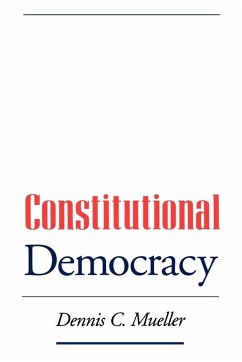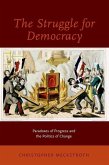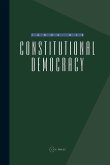Constitutional Democracy systematically examines how the basic constitutional structure of governments affects what they can accomplish. This relationship is especially important at a time when Americans are increasingly disillusioned about government's fundamental ability to reach solutions for domestic problems, and when countries in the former Soviet block and around the world are rewriting their constitutions. Political economist Mueller illuminates the links between the structure of democratic government and the outcomes it achieves by drawing comparisons between the American system and other government systems around the world. Working from the "public choice" perspective in political science, the book analyzes electoral rules, voting rules, federalism, bicameralism, citizenship, and separation of powers. It will be of great interest to students and scholars of political economy.
This volume systematically examines how the basic constitutional structure of governments affects what they can accomplish. At a time when Americans are more and more disillusioned about government's fundamental ability to reach solutions for domestic problems, and when countries in the former Soviet block and around the world are rewriting their constitutions, the relationship between government and constitution is especially important. Political economist Dennis Mueller illuminates the links between the structure of democratic government and its outcomes by drawing comparisons between the American system and other systems around the world. Working from the "public choice" perspective in political science, the book analyzes electoral rules, voting rules, federalism, citizenship, and separation of powers, making it a valuable resource for anyone curious about the world's political environment.
Hinweis: Dieser Artikel kann nur an eine deutsche Lieferadresse ausgeliefert werden.
This volume systematically examines how the basic constitutional structure of governments affects what they can accomplish. At a time when Americans are more and more disillusioned about government's fundamental ability to reach solutions for domestic problems, and when countries in the former Soviet block and around the world are rewriting their constitutions, the relationship between government and constitution is especially important. Political economist Dennis Mueller illuminates the links between the structure of democratic government and its outcomes by drawing comparisons between the American system and other systems around the world. Working from the "public choice" perspective in political science, the book analyzes electoral rules, voting rules, federalism, citizenship, and separation of powers, making it a valuable resource for anyone curious about the world's political environment.
Hinweis: Dieser Artikel kann nur an eine deutsche Lieferadresse ausgeliefert werden.








